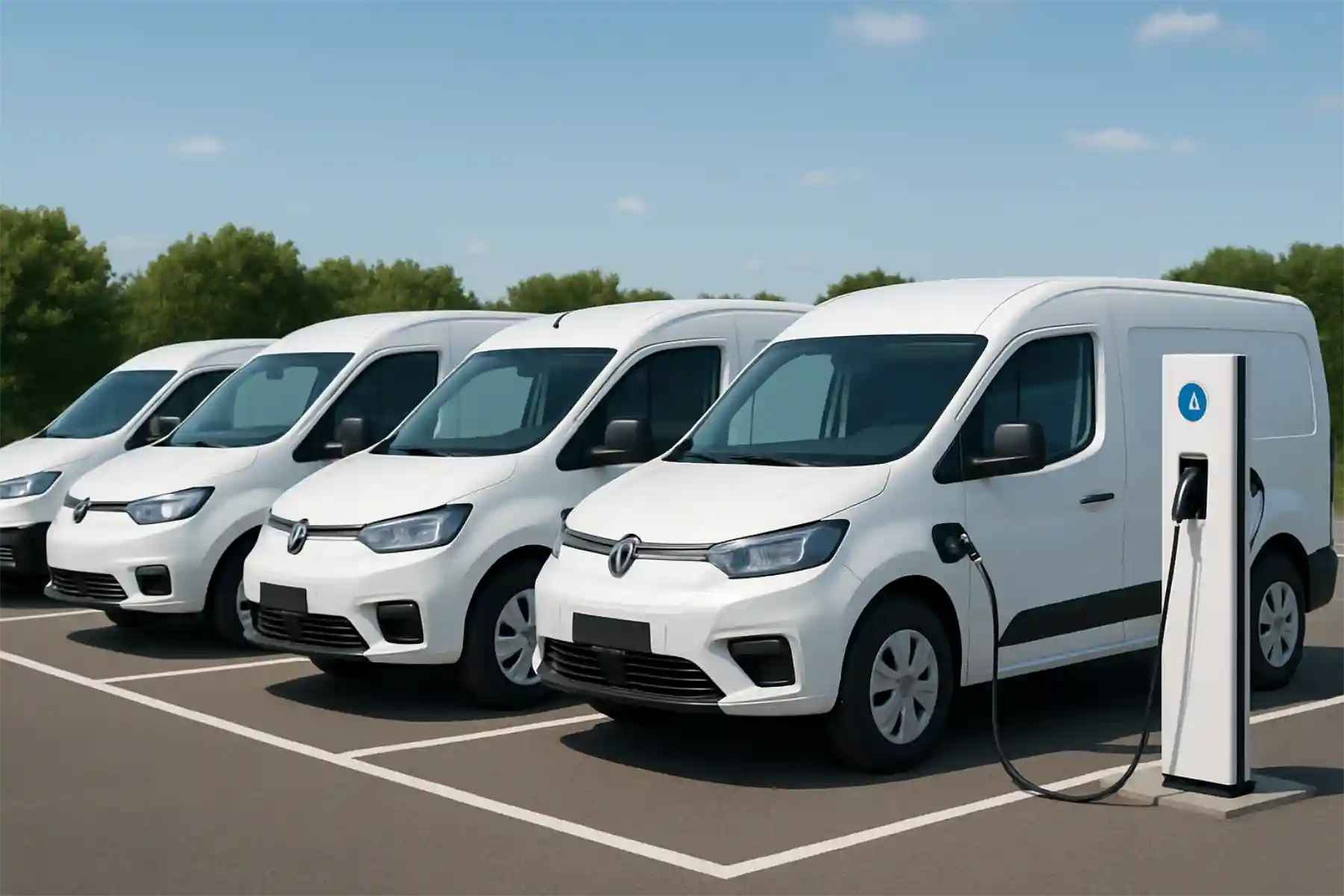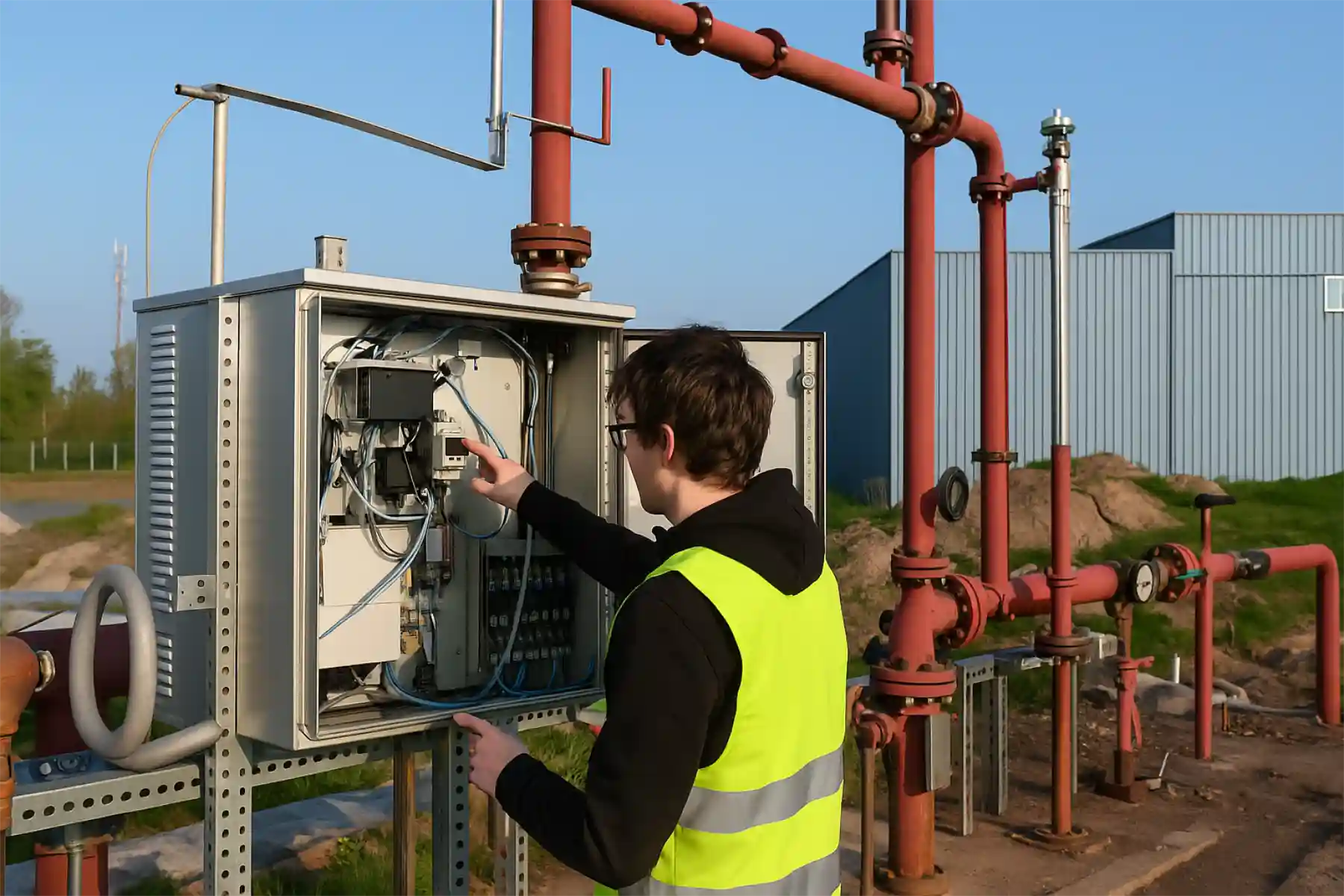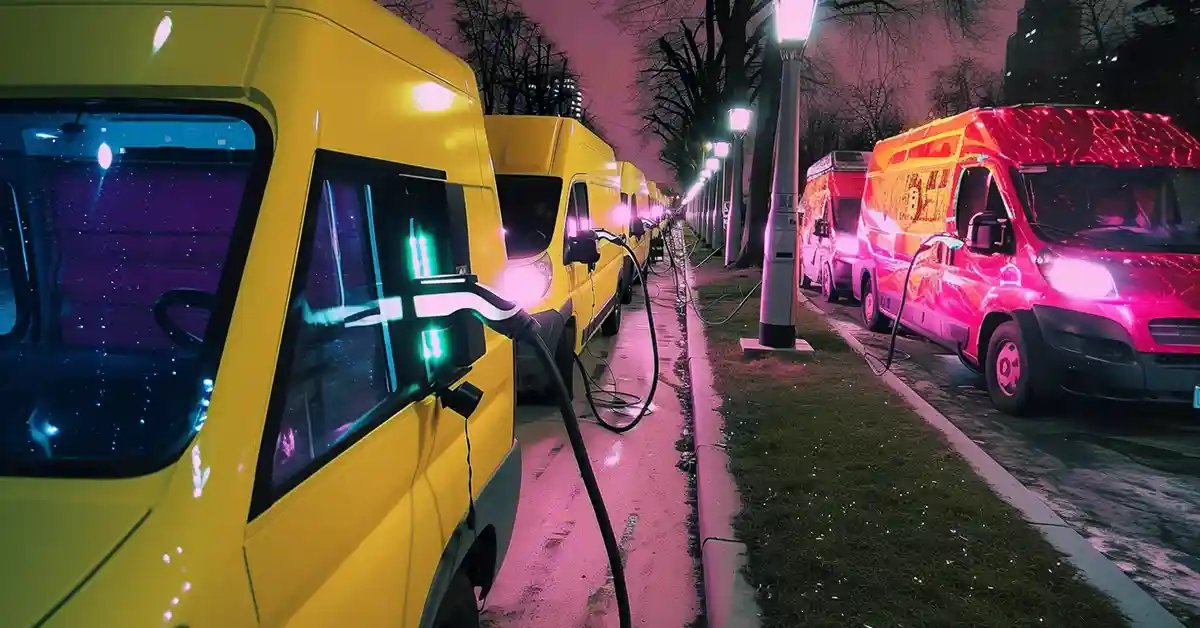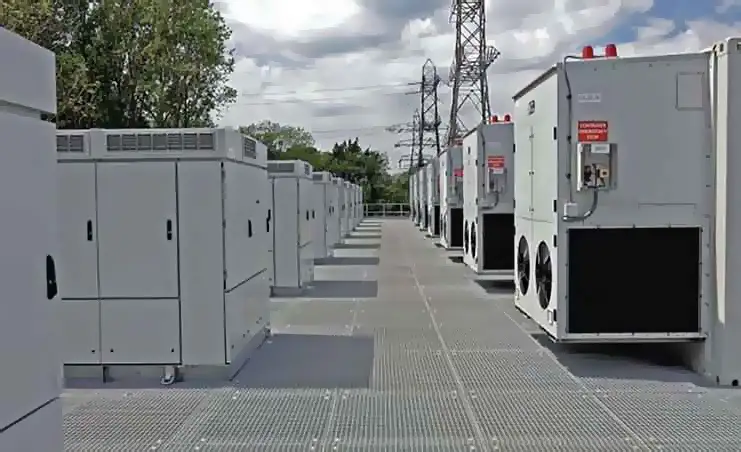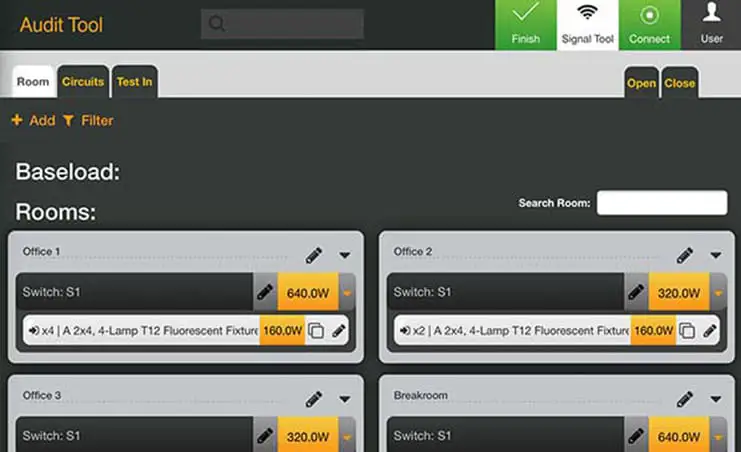EV charge control systems for very large fleet parks.
Overview.
Project background.
Full Stack Energy’s client provides energy systems and services to some of the world’s largest logistics fleets. Typically, these logistics customers operate fleet parks with anywhere between 10 and 300 charging bays, generally co-located with sorting and dispatch centres. They needed to balance the charging requirements of their EV fleet without exceeding their supplier connection agreement for total site load, to avoid substantial financial penalties.
- Typical logistics industry charge parks have between 20 and 300 EV charging bays, most equipped with 22kW AC level 2 chargers, and occasionally with Level 3 DC fast chargers. Collectively, these posed a significant load on the local electrical infrastructure.
- Slow fault detection that could jeopardise client comfort‑levels and contracts.
- A technology ceiling that would stall future scaling.
Full Stack Energy's
Solution.
Full Stack Energy’s deployed a team of experts to work closely with the clients operations team to develop a range of products and solutions that could be sold to the clients customers.
Key technical highlights:
- Load Management: Developed scalable static and dynamic load management system for OCPP-based chargers.
- Traffic Interception: Implemented reliable embedded applications to intercept OCPP traffic and inject load control instructions seamlessly
- Remote IoT Device Management: Leveraged Microsoft Azure IoT and Azure IoT Edge to securely manage and maintain remote devices, such as cellular routers and secure Linux gateways, across Europe.
- Charger Certification: Developed an automated certification system to verify that chargers were sufficiently compliant with the OCPP standards
- Data Processing: Implemented cloud-based data ingestion, processing, and storage and implemented various scaling products from Microsoft Azure.
- Dynamic “Shim Layer”: Created an automated layer to dynamically rewrite OCPP traffic so as to accommodate non-compliant chargers
- Ancillary Systems: Deployed tools for visualization, reporting, security, IoT device management, and billing.
Implementation:
Germany/Europe
Industry:
E-Mobility in Global Logistics
Time Range:
2019-2023
Client:
Energy Solutions Provider
End-customer:
Logistics Companies
Tech stack.
Databases:
PostgreSQL •InfluxDB • sqlite
Cloud Software:
all bespoke • mostly written in Python 3
Field Software:
all bespoke • written in Python 3 • heavily leveraging asyncio for performance
Field Gateways:
Linux Yocto-based Distro running on Industrial-grade ARM-based computers
Cloud Platform as a Service (PaaS):
Microsoft Azure
IoT Management:
Microsoft Azure IoT • Microsoft Azure IoT Edge
Visualisation System:
Grafana • various custom solutions
Containerisation:
Kubernetes • Docker, etc
Protocols:
MODBUS • OCPP
Outcome.
Impact & results.
Why it matters.
Without smart load management, the end customer faced potential financial risks and operational inefficiencies. This solution not only avoided huge costs it also enabled the client to scale operations across Europe to 30+ charge parks. That’s the measurable difference we bring.
- Zero penalties: every depot now operates safely inside its grid‑connection contract.
- 60 % peak‑load shave: smart scheduling shifts charging to off‑peak windows – cutting both demand and energy cost.
- Rapid scale‑out: the system was rolled to 30+ parks in six countries with limited site support.
- New revenue stream: the load‑management package became a billable add‑on for the client’s logistics customers, unlocking recurring software and energy‑service income.

